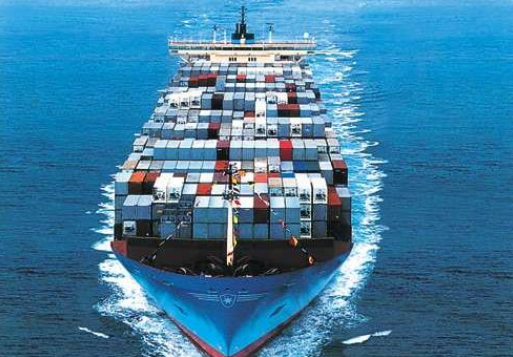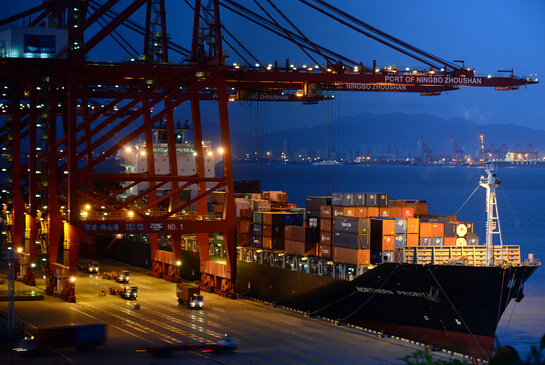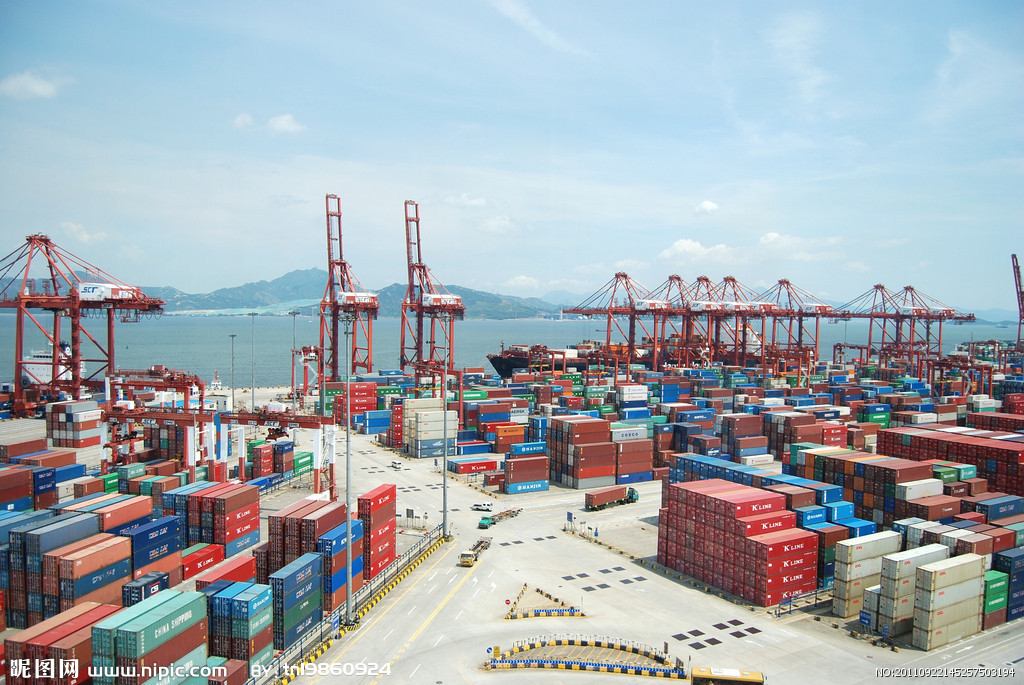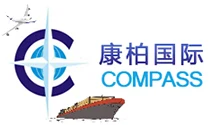What are customs declaration, customs clearance, and customs clearance?
Release Time:2022-02-11
Author: --
What are customs declaration, customs clearance, and customs clearance?
What are customs declaration, customs clearance, and customs clearance?
Customs declaration refers to the process where the owner or their agent declares goods, luggage, postal items, vehicles, etc., to customs when entering or leaving the country or region, presenting required documents and certificates, and requesting customs to handle relevant import and export procedures. Chinese customs regulations specify the documents and certificates to be submitted during customs declaration, including: import and export declarations, import and export licenses, commodity inspection certificates, plant and animal quarantine certificates, food hygiene inspection certificates, as well as delivery notes, loading lists, waybills, invoices, packing lists, etc.
Customs clearance refers to the process where imported, exported, and transshipped goods entering a country's customs territory or border must be declared to customs, handling various procedures stipulated by customs and fulfilling obligations stipulated by various regulations. Only after fulfilling these obligations and completing customs declaration, inspection, taxation, and release procedures, can the goods be released, and the owner or declarant can collect the goods. Similarly, various means of transport carrying import and export goods entering or leaving the country or transiting must also be declared to customs, completing customs procedures and obtaining customs permission. During customs clearance, regardless of import, export, or transit, goods are under customs supervision and cannot be freely circulated.
Customs clearance is the same as customs clearance; it is also customarily referred to as clearance.
What documents are required for customs declaration?
Importers and exporters must submit the following documents when declaring to customs:
1. Import and export declaration form. Generally, two copies should be filled out for imported goods; for goods that require customs verification, such as processing trade goods and bonded goods, three copies of a special declaration form should be filled out; for goods that require domestic tax refunds after export, a separate tax refund declaration form should be filled out.
2. Commercial invoice. One less copy than the number of declaration forms is required; for goods exported and entrusted to overseas sales where settlement is based on actual sales amount after goods are sold, payment is made to the exporter, the invoice can be exempted during export customs declaration.
3. Land waybill, air waybill, import delivery order for sea freight, and shipping order for sea freight export. After customs reviews the documents and inspects the goods, it will stamp and release the original waybill, which is used to collect or ship the goods.
4. Packing list. The number of copies is the same as the invoice. However, this can be exempted for bulk cargo or single-variety cargo with consistent packaging contents.
5. Export foreign exchange settlement verification form. When declaring all export goods, the export foreign exchange settlement verification form stamped with the "supervision of foreign exchange settlement" seal by the foreign exchange administration department must be presented, and the verification number must be filled in the upper right corner of each export declaration form.
6. If deemed necessary by customs, trade contracts and certificates of origin must also be presented.
7. Other relevant documents, including:
(1) For goods approved by customs for tax reduction or exemption, tax reduction and exemption certificates stamped by customs should be submitted; foreign-funded enterprises in Beijing need to also present import equipment lists issued by customs;
(2) For goods imported and exported under processing trade contracts that have been filed with customs, the "registration handbook" issued by customs should be presented.
Customs declaration for compensation trade
How to register and file compensation trade with customs?
Operating units and production enterprises executing compensation trade contracts shall apply to customs for registration and filing within one month from the date of contract approval and submit the following documents:
(1) Approval document and contract filing certificate issued by the competent economic and trade department.
(2) Business license issued by the Administration for Industry and Commerce.
(3) Copy of the external contract.
(4) Export finished product approval document for export goods licenses that require approval from the foreign economic and trade department.
(5) Other documents and economic guarantees deemed necessary by customs.
After reviewing the above documents, customs will register those that meet the conditions of compensation trade and issue the "Registration Handbook for Processing Assembly and Small and Medium-sized Compensation Trade Import Goods", which is used to handle customs declaration procedures for goods.
(6) How to handle customs declaration procedures for import and export goods under compensation trade?
When importing raw materials, parts, components, and equipment, and exporting processed products under compensation trade, relevant foreign trade (industrial and trade) companies and production companies shall submit three copies of the "Registration Handbook" and the completed goods declaration form to the customs at the import and export location for declaration, and present relevant documents such as waybills, invoices, and packing lists.
(7) Equipment imported under compensation trade is under customs supervision from the date of import until full repayment.
Without permission from the foreign economic and trade management department and customs approval, no unit or individual may sell, transfer, dispose of, or remove it for other uses. If it needs to be disposed of for any reason, permission must be obtained from the economic and trade management department and customs approval must be obtained, and customs duties must be paid according to regulations; if it is a licensed commodity, the import license must also be presented.
(8) Can compensation trade products be transferred to a third party?
Yes. If the contract stipulates that the product will be resold to a third party designated by both parties, and the third party must sign and confirm the contract, but the Chinese side cannot sell it to the third party on its own or on behalf of the foreign trader. If the compensation products are under the unified management of the state, have export quotas, and are managed by export licenses, approval must be obtained from the Ministry of Commerce in advance.
(9) Can products continue to be exported after the completion of the compensation trade contract?
Yes. However, the continued export of products and the equipment and other materials purchased for export shall be handled according to the procedures for general import and export goods and cannot be considered as compensation trade.
(10) Can leased imported equipment be used for compensation trade?
There are two scenarios for using leased imported equipment for compensation trade:
A: If the leasing company leases or rents imported equipment and then sublets or subleases it to a processing enterprise engaged in compensation trade, taxes must be paid according to regulations.
B: If the leasing company is commissioned by a foreign trader to lease imported equipment for processing with supplied materials and compensation trade, and meets the conditions for compensation trade, customs will provide corresponding preferential treatment.
(11) Can finished products under processing with supplied materials be exported as compensation products?
If processed finished products under the processing trade are used to compensate for the cost of technical equipment or principal and interest of credit provided by foreign businesses, it is essentially equivalent to purchasing the relevant imported technical equipment with foreign exchange, which does not comply with the relevant regulations of compensation trade.
How to handle customs verification procedures after the compensation trade contract expires or is completed?
Within one month from the expiration of the compensation trade contract or the export of the last batch of finished products, the relevant units should truthfully fill in the verification application form (with the unit's seal) in the "Registration Handbook" and submit it to the competent customs along with the import and export cargo declaration form stamped by the port customs during the import of goods to handle the verification and closing procedures.
If domestic raw materials are lacking, can raw materials be imported from abroad to produce finished products to repay the cost of compensation trade equipment?
Before signing a compensation trade contract, a feasibility study should be conducted. The raw material issue is an important topic in the feasibility study. If the raw material problem cannot be solved, negotiations with foreign parties should be stopped, or a processing and assembly contract should be signed instead, and the imported equipment should be paid for with processed goods. If a contract has already been signed and there is a sudden shortage of domestic raw materials, in order to fulfill the contract, raw materials must be imported from abroad. Although the imported raw materials will be used to produce finished products for resale abroad, which is of the nature of processing trade, import tax reduction and exemption benefits cannot be granted. If the import tax burden on raw materials is too high and the relevant enterprises cannot bear it, if the relevant authorities approve the import of raw materials as processing trade, the customs can grant tax reduction and exemption according to the processing trade regulations. However, for any equipment whose cost is repaid using finished products produced from raw materials imported with tax reduction and exemption, the customs will levy supplementary import taxes on the equipment.
Customs declaration deadline for import and export goods
The customs declaration deadline for import and export goods is clearly stipulated in the Customs Law, and the customs declaration deadline for export goods is different from that for import goods.
Except as specially permitted by the customs, the exporter or its agent shall declare to the customs 24 hours before loading. This provision is made to give the customs sufficient time to inspect the goods before loading, so as to ensure the normal operation of customs work.
If no declaration is made to the customs before the deadline, the customs may refuse to accept the customs declaration. In this case, the export goods will not be inspected, taxed and released by the customs, and cannot be loaded and transported, thus affecting the acquisition of transport documents, and even leading to delayed shipment and breach of contract. Therefore, customs declaration procedures should be handled early to ensure timely shipment.
The consignee or its agent of imported goods shall handle the customs declaration procedures for imported goods within 14 days from the date the carrier carrying the goods declares entry. This provision is made to speed up port transportation, facilitate the early use of imported goods, reduce errors, and prevent fraud.
If no declaration is made to the customs within the statutory 14 days, the customs will levy a late declaration fee. The starting date for levying the late declaration fee is the 15th day from the date the carrier declares entry; for goods in transit, it is the 15th day from the date the goods arrive at the designated place; for goods imported by mail, it is the 15th day from the date of receipt of the notice from the post office. The deadline is the date of customs declaration. The daily levy rate of the late declaration fee is 0.5% of the CIF price of the imported goods, and the starting point is RMB 10. The formula for calculating the late declaration fee is:
Total late declaration fee = CIF price of goods × number of days late × 0.5‰
If the consignee of imported goods fails to declare to the customs within three months from the date the carrier declares entry, the imported goods shall be seized and sold by the customs. After deducting transportation, loading and unloading, storage fees and taxes from the proceeds, if there is any remaining amount, it shall be returned to the consignee upon application within one year from the date of sale; if no one applies for it after the deadline, it shall be turned over to the national treasury. This does not apply to imported goods that are actually mis-discharged or over-discharged.
Related News









